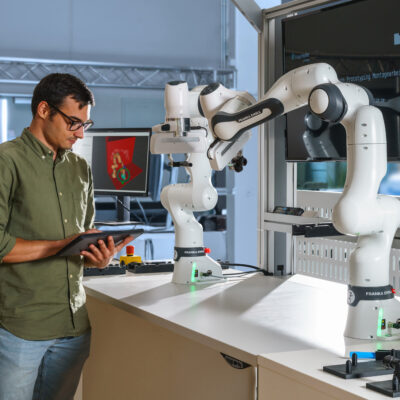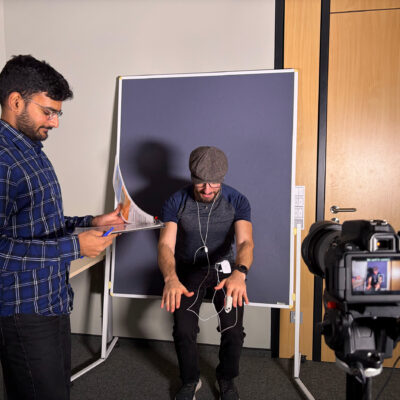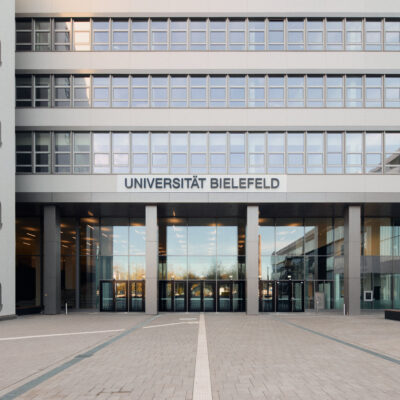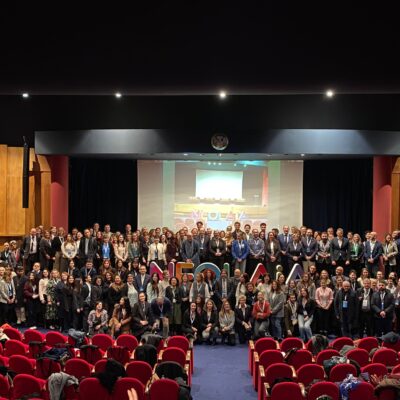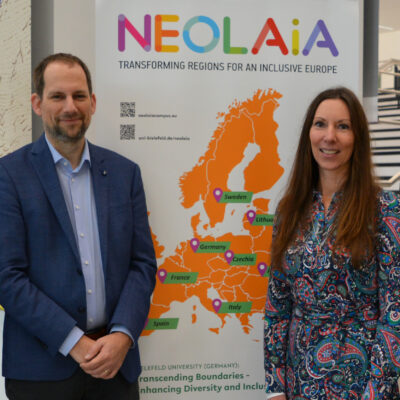A self-driving car or a household robot comes onto the market. But the question is: what then? For instance, it is unclear who is liable in the event of an accident or what the role of data protection is. These legal uncertainties lead to economic uncertainties: they influence whether manufacturers venture into the development of smart products at all and how much they invest in product safety.
‘In the development and market launch of new products or technologies, there are always uncertainties that influence, for instance, when a product should be released onto the market,’ says Professor Dr Herbert Dawid from the Faculty of Business Administration and Economics at Bielefeld University. ‘The proliferation of smart products is leading to new uncertainties. In part, uncertainty is already inherent in the products because the algorithms are mostly non-transparent: we don’t even know why a self-driving car makes a certain decision.’
Using mathematical models to understand uncertainty
Dawid, who heads the Economic Theory and Computational Economics research group, is interested in economic uncertainties. Using mathematical methods, the academics develop models to simulate uncertain economic scenarios. ‘We are trying to understand what impact uncertainty has and how it is used by different actors,’ says Dawid.
Dawid investigated the role of uncertainties in the advent of smart products, for example, in a research group at the Center for interdisciplinary Research (ZiF) at Bielefeld University. Dawid headed the ZiF research group ‘Economic and legal challenges in the advent of smart products’ together with researchers from the Universities of Basel and Hamburg. The collaboration ran until mid-2022.
Uncertainty creates opportunities
Uncertainty plays a key role in the economy: it gives new or small companies the chance to outsmart their established competitors, and it spurs all companies on to be more innovative. As a result, it drives technological change and the emergence of new markets and industries. ‘We are looking into how companies use uncertainty strategically. This is a new focus: until now, economic research has tended to concentrate on how to eliminate uncertainty,’ says Dawid.
One example of this is the automotive industry. Properties that previously played no role at all, such as how good the control processes are for self-driving cars, have suddenly become important for manufacturers. ‘There is great uncertainty about future market and industry development in this sector. Companies are taking advantage of this uncertainty. For example, Google can announce that it is developing a car because it is unclear what the crucial competence of the future will be. Does it depend on being able to build a good engine like the established German manufacturers? Or is it a question of having the data to be able to develop control processes?’ says Dawid.
This also leads to uncertainty about which region economic activity will shift to in the future, and this may provide opportunities for weaker regions to catch up. Dawid and his colleagues are modelling such scenarios in the GROWINPRO project. The European Union is funding GROWINPRO under the Horizon 2020 research and innovation programme. Together with researchers from 13 other European universities and institutes, Dawid and his team are analysing why economic growth has slowed down in Europe and they are suggesting possible policy solutions
Better investment loans with market uncertainty
Dawid is working on the level of individual companies in the Collaborative Research Centre (CRC) 1283 at Bielefeld University. The German Research Foundation (DFG) is funding the mathematics-oriented CRC in a second funding period until 2025. In a subproject, Dawid is looking into how companies can use market uncertainty to optimize investments: ‘Particularly smaller companies need to borrow money in order to invest. Our models show the conditions under which greater uncertainty can result in firms getting loans with a lower interest rate. It just goes to show that removing uncertainty is not always a good thing.’
Dawid is also fascinated by cases in which companies use the intransparency of algorithms. ‘For example, algorithms are used to determine prices. Economic studies show that these prices are often too high; and companies can exploit this because—thanks to the intransparency of algorithms—they don’t have to fear antitrust fines,’ says Dawid. ‘An interesting question then is whether the same effect occurs in the labour market: in other words, whether there is a risk that algorithms will set wages too low.’
This kind of work is important in order to assess uncertainty, says Dawid—and to better regulate how much uncertainty should be allowed. ‘Focusing on the benefits of uncertainty is an exciting next step, and Bielefeld University has a lot of expertise in this area,’ says Herbert Dawid.




